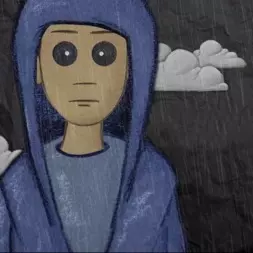- cross-posted to:
- [email protected]
- cross-posted to:
- [email protected]
The news isn’t a surprise as Unity angered a lot of its loyal game developers a few weeks ago after pushing through a price increase based on numbers of downloads — and then retracted it after an uproar.



While unfortunate, as a consumer it’s the only recourse we have. We don’t buy unity, we buy games. I won’t buy a game that might just suddenly disappear from a store where I bought it, cause the developer can’t or won’t carry install fees that may or may not come at any point.
Yes, it hurts developers. Yes, he shouldn’t have to suddenly have to pay that fee, but that is out of my control. But I’m still not taking the risk with my money. Unity clearly wants to do this, eventually they probably will.
Let’s stop buying games with unity so they have no customers left that can slam with install fees after-the-fact. All we can do.
deleted by creator
So all the effort and money they spent in developing their games, before knowing about this movement from Unity, should be punished?
I understand your intentions, but indie devs don’t have the capacity to switch engines, let alone redevelop everything when it’s already or almost finished. I’d understand if you do it at the start of 2024.
Also, this is speculation, but I’ve seen devs provide alternatives to get their games. A lot of developers have already declared their intentions to switch engines from now on and they can’t do that if they don’t have a budget.
If we buy games from devs so they can afford to switch engines, won’t that mean we’ll end up with games that won’t get updated because the Unity codebase will become obsolete when they switch?
Or is the thinking that devs need to swear that existing licences will work with the game once it’s ported to some new engine?
I’d support existing Unity-based games if the devs declared they will port, and that my license will still work once ported. If the particular devs aren’t going to leave Unity, I’m not sure I’d be happy to keep supporting them, because that will keep Unity in business, and I think an example needs to be made.
Also, I understand switching platforms will be horribly work intensive, but it’s not like it’s starting from scratch. If the code can’t be ported directly, the logic still can (providing the new platform supports the necessary functionality), and the assets also exist.
Imagine writting a pitch to your publisher trying to explain that you need more money (you know, to survive because we live in a society) because players feel entitled enough to demand you port your game to another engine. That’s pretty much how horrible it is. The hard truth is game development is an awful industry for workers which are often expected to work for free. It is really depressing.